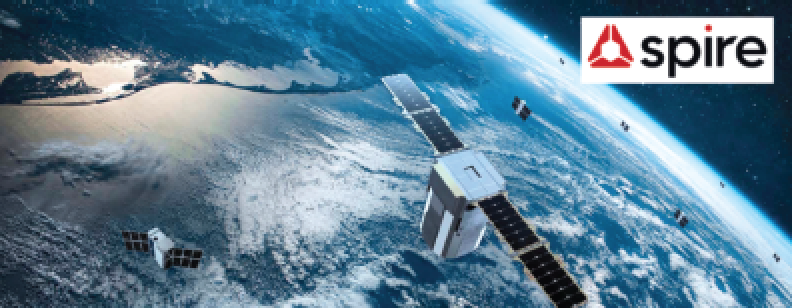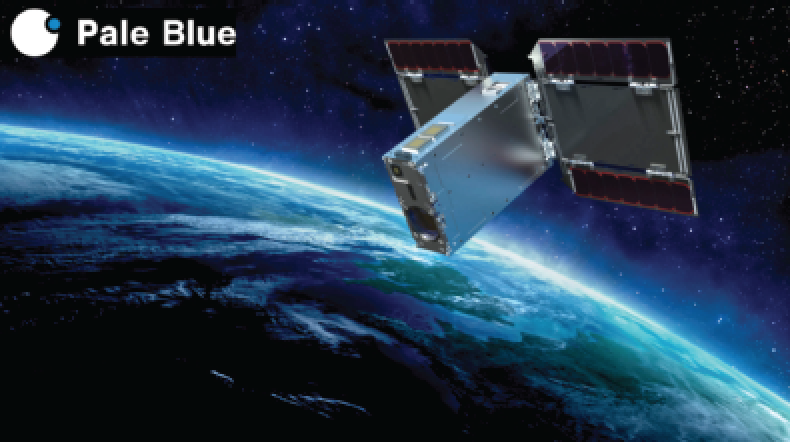Unseenlabs to launch BRO-12 and BRO-13 satellites
Unseenlabs is expanding via two new satellites — the BRO-12 and BRO-13 satellites that will launch NET March, as part of the Transporter-10 mission aboard SpaceX’s Falcon 9 rocket via Exolaunch from the Vandenberg Space Force Base in California.

The Unseenlabs satellite-based surveillance technology captures electromagnetic waves, specifically radio frequency signals, from space to detect passive emissions from ships’ electronic systems with technical and geographical precision.
Vessels will deliberately turn off their transponder to evade surveillance and engage in illegal activities such IUU fishing, ocean dumping, overfishing, or other trafficking at sea.
Using passive emissions from ships’ electronic systems to detect a vessel is a tamper-proof method of collecting data to locate them.
Prior to Unseenlabs, there was a significant gap in visibility within oceans to identify ships that disabled transponders.
With the additional satellites, more governments, insurers, shipowners, and non-governmental organizations (NGO) now have access to radio frequency surveillance to identify ships seeking to evade detection, ensure maritime security, and protect the marine environment.
Orbex secures international patent for coaxial rocket fuel tanks
Orbex has been granted an international patent across more than a dozen countries to protect the firm’s coaxial tanking technology, which nests the main rocket fuel tank within the main oxidizer tank.

This coaxial tank structure is central to the design of Orbex’s Prime rocket and allows for a uniquely low mass rocket that is around 30 percent lighter than similarly sized launchers while offering greater power, higher performance, and better economy.
Very small rockets, which copy the traditional `stacked` tank architecture of larger rockets, are less efficient and cost- effective than their larger counterparts as they carry much less fuel per unit of ‘dry mass.‘ This central inefficiency was the major engineering challenge that the Orbex team set out to solve with the Orbex Prime architecture.
The Orbex team created a unique answer to that challenge, by nesting the fuel tank within an outer tank of liquid oxygen. This tank arrangement has unique synergies with Orbex’s choice of bio-propane as a rocket fuel because bio-propane does not freeze solid when chilled to the same temperature as liquid oxygen.
The coaxial tank structure thus removes surplus components and sub-systems such as insulation, extra bulkheads, external pipework, heavy tank walls and thermal conditioning equipment.
More info: news.satnews.com/2024/02/21/orbex-secures-international-patent-for-coaxial-rocket-fuel-tanks/
Spire Global awarded million€ by the European Maritime Safety Agency
Spire Global, Inc. (NYSE: SPIR) has been awarded two framework contracts by the European Maritime Safety Agency (EMSA) with a maximum overall budget of €8.4 million.

Concurrent with the framework award, Spire received two specific awards that total multi-million euros under the framework contracts.
Under the contracts, Spire will provide space-based automatic identification system (SAT-AIS) data services for ship tracking over a four-year period, including real-time, standard and high-density backup SAT-AIS.
Spire has provided satellite AIS data to EMSA since 2020.
The data will be integrated into EMSA’s SAT-AIS services, which aims to improve global vessel traffic monitoring with a focus on areas like polar regions where terrestrial AIS network coverage is limited.
EMSA’s SAT-AIS data services play a critical role in monitoring vessel traffic by acquiring data beyond the reach of terrestrial AIS network coverage to facilitate worldwide vessel monitoring.
Spire’s data will play a key role in enhancing global vessel tracking and maritime domain awareness, supporting EMSA’s mission.
Additional info: news.satnews.com/2024/02/21/spire-global-awarded-millione-by-the-european-maritime-safety-agency/
Pale Blue to establish a new development base for production tech
Pale Blue will establish a new development base for production technologies in Tsukuba City in Ibaraki Prefecture, Japan, aiming for business expansion of water based propulsion systems toward the company’s vision of creating mobility capabilities that are core to the space industry.

Pale Blue has also been awarded the Ibaraki Prefecture Corporate Location Promotion Subsidy, expected to be around $1 million (JPY 150M) 150M), and the company will strengthen collaboration with the Ibaraki Prefecture Background
Following the recent advent of smallsats that can be developed at a lower cost and in a shorter lead time, an increasing number of companies across the globe have entered their businesses into the space industry and that leads to a rapid expansion in commercial applications.
The growth driver is satellite constellations wherein a group of smallsats are launched and work together as a system to provide services such as communication and Earth Observation (EO).
To operate a satellite constellation, it is necessary to coordinate the positioning of multiple satellites in space as well as to take measures to mitigate space debris. According to the company, the propulsion systems Pale Blue has developed are keys to satellite constellations.
Additional info: news.satnews.com/2024/02/21/pale-blue-to-establish-anew-development-base-for-production-tech/




